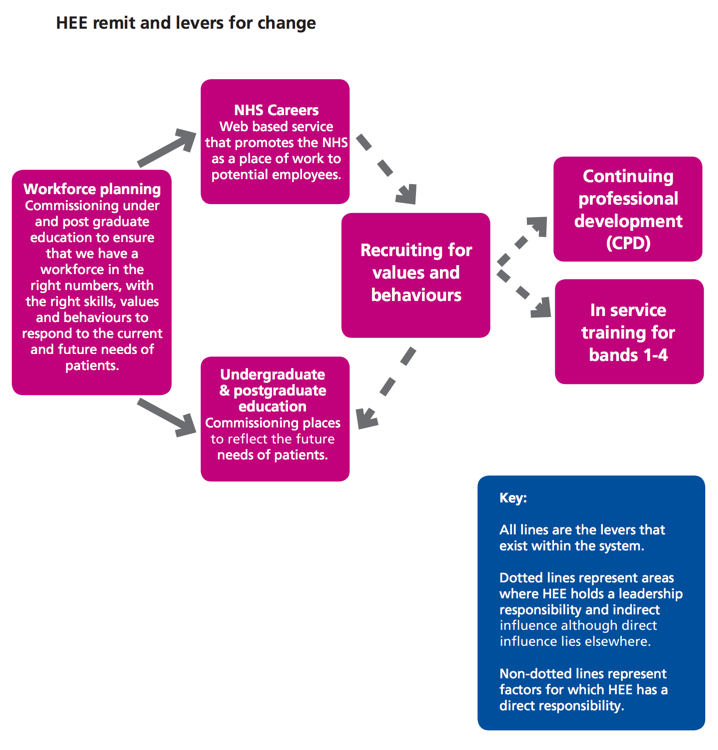
The NHS spent nearly £5 billion on education and training in 2012/13—approximately £9,500 a minute. On average it costs approximately:
● £70,000 to train a qualified nurse
● £60,000 to train an allied health professional
● £560,000 to train a medical consultant
● £500,000 to train a GP.
HEE will ensure that the workforce has the right skills, behaviours and training, and is available in the right numbers, to support the delivery of excellent healthcare and drive improvements. HEE will support healthcare providers and clinicians to take greater responsibility for planning and commissioning education and training through the development of Local Education and Training Boards (LETBs), which are statutory committees of HEE.

The establishment and development of HEE was set out in Liberating the NHS: Developing the Healthcare Workforce, From Design to Delivery [2], the Government’s policy for a new system for planning commissioning education and training.
The driving principle for reform of the education and training system is to improve care and outcomes for patients and HEE exists for one reason alone – to help ensure delivery of the highest quality healthcare to England’s population, through the people we recruit, educate, train and develop.
The key national functions of the organisation will include:
- Providing national leadership for planning and developing the whole healthcare and public health workforce
- Authorising and supporting development of Local Education and Training Boards and holding them to account
- Promoting high quality education and training which is responsive to the changing needs of patients and communities and delivered to standards set by regulators
- Allocating and accounting for NHS education and training resources – ensuring transparency, fairness and efficiency in investments made across England.
- Ensuring security of supply of the professionally qualified clinical workforce
- Assisting the spread of innovation across the NHS in order to improve quality of care
- Delivering against the national Education Outcomes Framework to ensure the allocation of education and training resources is linked to quantifiable improvements.

